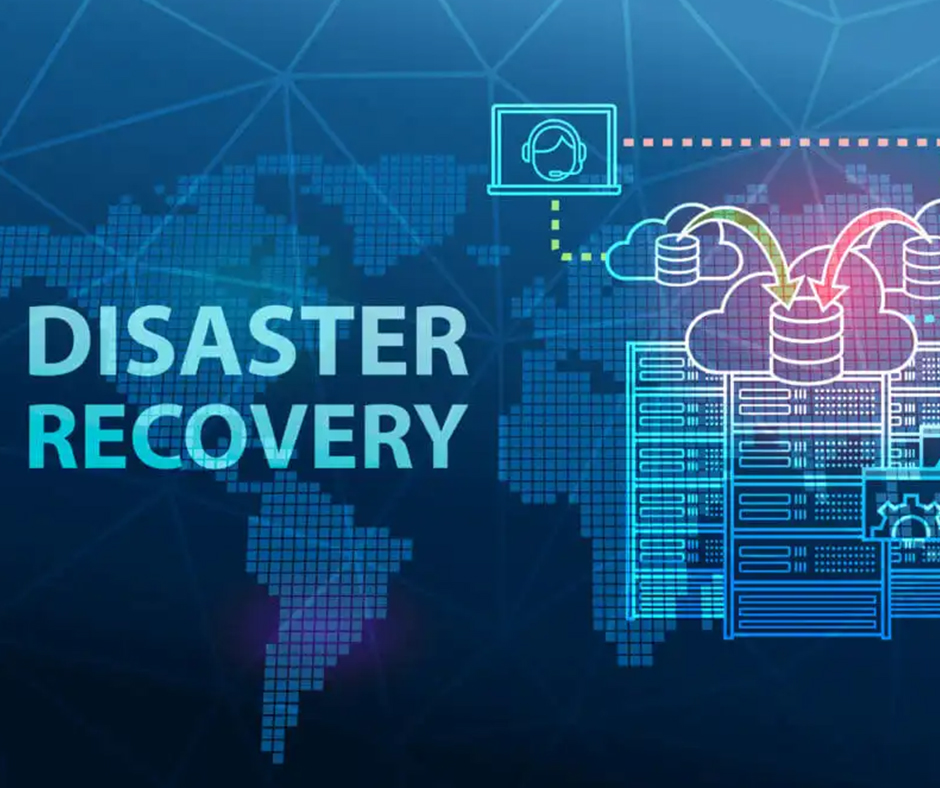Continuity, Resilience, and Recovery

Business Continuity Management Systems- ISO 22301
"This training course is designed to help participants understand the fundamental concepts and principles of a business continuity management system (BCMS) based on ISO 22301. By attending this training course, participants will learn more about the structure and requirements of the standard including the BCMS policy, the top management’s commitment, internal audit, management review, and continual improvement process.
After attending the training course, you can sit for the exam and, if you successfully pass it, you can apply for the “PECB Certificate Holder in ISO 22301 Foundation” credential. A PECB Foundation certificate shows that you have knowledge on the fundamental concepts, principles, methodologies, requirements, framework, and management approach used in business continuity."
"The ISO 22301 Foundation training course is intended for:
Managers and consultants seeking knowledge about the basic concepts and principles of business continuity.
Professionals wishing to get acquainted with ISO 22301 requirements for a BCMS.
Individuals engaged in or responsible for business continuity activities in their organizations.
Individuals wishing to pursue a career in business continuity management."
"By the end of this training course, the participants will be able to:
Describe the business continuity management concepts and principles.
Explain the main ISO 22301 requirements for a business continuity management system.
Identify potential actions and approaches that organizations can use to achieve conformity to ISO 22301."
There are no prerequisites to participate in this training course.
"Disasters have various impacts in organizations. Disasters can result from natural events, information security breaches, or various other incidents. They are often unpredictable and that highlights the significance of preparedness in setting your business apart and shaping its future. As such, proper planning is essential in reducing risks, minimizing consequences, and managing the negative impacts of disasters and incidents while ensuring the continuity of daily operations to meet customer needs without interruption.
Establishing a BCMS based on ISO 22301 can help organizations progress toward understanding and managing disasters, incidents, and risks. Therefore, this training course is designed to provide participants with the necessary knowledge and skills to implement a business continuity management system (BCMS) based on the requirements of ISO 22301. By participating in this training course, you will learn the best practices of business continuity management, enabling the establishment of a framework that ensures an organization's continued operational effectiveness during disruptive events.
Upon completing the training course, you are eligible to take the exam. If you pass the exam, you can apply for the “PECB Certified ISO 22301 Lead Implementer” credential. The internationally recognized “PECB Certified ISO 22301 Lead Implementer” certificate demonstrates that you have the professional skills and practical knowledge to implement a BCMS based on the requirements of ISO 22301."
"Managers and consultants involved in business continuity.
Individuals seeking to master the implementation of the business continuity management system.
Individuals responsible for ensuring and maintaining conformity with BCMS requirements within an organization.
Individuals carrying out roles and responsibilities related to the BCMS."
"By the end of this training course, you will be able to:
Explain the fundamental concepts and principles of a business continuity management system (BCMS) based on ISO 22301.
Interpret the ISO 22301 requirements for a BCMS from the perspective of an implementer.
Initiate and plan the implementation of a BCMS based on ISO 22301, by utilizing PECB’s IMS2 Methodology and other best practices.
Apply best practices to support the ongoing effectiveness and improvement of the BCMS based on ISO 22301
Interpret the requirements for an ISO 22301 certification audit."
To attend this training course you should have a fundamental understanding of business continuity concepts and principles.
Business Continuity Management Systems - ISO 22301 Lead Auditor "In response to the growing prevalence of disruptions and the unpredictable nature of various types of disasters, including those of natural, occupational, or information security nature, organizations are actively pursuing ISO 22301 certification. As more organizations seek compliance with ISO 22301, there is a corresponding demand for skilled auditors who possess the necessary skills and knowledge to assess and verify their compliance.
Recognizing the paramount importance of conducting effective audits and the methods required for their success, PECB has designed the ISO 22301 Lead Auditor training course. This training course equips you with the knowledge and skills needed to plan and execute audits in accordance with ISO 19011 standards and navigate the certification process as per ISO/IEC 17021-1 requirements. Through dynamic learning experiences, including interactive sessions, comprehensive explanations, practical exercises, and discussions, you will gain profound insights into business continuity management systems and audit techniques.
After completing the training course, you can sit for the exam. After passing the exam, you will earn the internationally recognized “PECB Certified ISO 22301 Lead Auditor” credential, serving as evidence of your professional expertise to audit organizations’ compliance with ISO 22301 requirements based on best auditing practices. "
"The ISO 22301 Lead Auditor training course is intended for:
Auditors seeking to perform and lead business continuity management system (BCMS) audits
Managers or consultants seeking to master the business continuity management system audit process
Individuals responsible for maintaining conformity with the BCMS requirements in an organization
Technical experts seeking to prepare for the BCMS audits
Expert advisors in business continuity management "
"By the end of this training course, you will be able to:
Explain the fundamental concepts and principles of a business continuity management system (BCMS) based on ISO 22301
Interpret the ISO 22301 requirements for a BCMS from the perspective of an auditor
Evaluate the BCMS conformity to ISO 22301 requirements, in accordance with the fundamental audit concepts and principles
Plan, conduct, and close an ISO 22301 compliance audit, in accordance with ISO/IEC 17021-1 requirements, ISO 19011 guidelines, and other best practices of auditing
Manage an ISO 22301 audit program"
Participants who attend this training course are required to have a fundamental understanding of business continuity concepts and a comprehensive knowledge of BCMS audit principles.

Lead Disaster Recovery Manager
"Disastrous events, which may be caused by natural, human, or technological hazards, significantly affect an organization’s ability to reach its objectives. In addition, the operations of many organizations are threatened due to a disaster after they cannot respond to or recover from the disaster adequately. That is why organizations should focus on developing capacities to prevent, anticipate, manage, and recover from disasters effectively through well-planned and tested disaster recovery plans (DRP).
The PECB Certified Lead Disaster Recovery Manager training course provides an approach to managing a disaster recovery planning project and developing and implementing an information and communications technology (ICT) disaster recovery plan. It equips participants with the necessary knowledge and skills to analyze the incident response plan, emergency plan, and crisis management plan, and conduct disaster recovery testing and performance measurements. By attending this training course, you will be introduced to disaster recovery best practices and will learn how to conduct a risk assessment and business impact analysis (BIA) for disaster recovery.
After attending the course, you are eligible to apply for sitting the exam. If you successfully pass the exam, you can apply for the “PECB Certified Lead Disaster Recovery Manager” credential. This credential will demonstrate your knowledge and professional capabilities to support and lead disaster recovery teams in implementing disaster recovery strategies based on best practices. "
"This training course is intended for:
Professionals or consultants seeking to learn how to implement disaster recovery planning projects, conduct risk assessments and BIAs, and carry out disaster recovery testing and performance measurements
Managers responsible for establishing a disaster recovery plan in an organization
Individuals responsible for maintaining the IT infrastructure in an organization
Members of a disaster recovery team"
"By the end of the training course, participants will be able to:
Explain the fundamental concepts of disaster recovery and its tiers
Initiate the disaster recovery planning project based on best practices
Conduct a risk assessment and business impact analysis and design mitigation strategies
Develop a disaster recovery plan and analyze the incident response plan, emergency plan, and crisis management plan
Conduct disaster recovery testing and performance measurements"
The main requirement for participating in this training course is having a general knowledge of disaster recovery concepts and strategies.

Crisis Management - PECB Certified Lead Crisis Manager
"The PECB Lead Crisis Manager training course helps participants develop their competence to support an organization in planning, establishing, maintaining, reviewing, and continually improving its strategic crisis management capability based on the guidelines of ISO 22361 and other best practices. It also provides information regarding the fundamental concepts and principles of crisis management and the effective establishment and implementation of a crisis management framework.
In addition to the explanation of the theoretical concepts related to crisis management, the training course provides practical examples and scenario-based quizzes that will help you reinforce your knowledge and prepare you for real-life scenarios concerning crisis management.
Upon the completion of the training course, participants can sit for the exam and apply to obtain the “PECB Certified Lead Crisis Manager” credential once they pass the exam. The credential demonstrates that the participant possesses the theoretical and practical knowledge and skills to support and lead an organization in designing and developing its crisis management capability based on ISO 22361 guidelines and best practices in this field."
"The Lead Crisis Manager training course is intended for:
Individuals responsible for the delivery of a crisis management capability in an organization
Individuals responsible for implementing a plan and structure for crisis management within the organization
Crisis leader(s)
Members of crisis management teams
Individuals seeking to thoroughly understand crisis management
Individuals aiming to start or advance their careers in crisis management
Consultants, advisors, and professionals wishing to obtain in-depth knowledge of ISO 22361 guidelines on crisis management"
"By the end of this training course, participants will be able to:
Explain the fundamental concepts of and principles for crisis management based on ISO 22361
Establish, maintain, and continually improve a crisis management framework that includes leadership, structure, culture, and competence
Anticipate, assess, prevent, and prepare for crises
Respond to, recover, and learn from crises in order to improve an organization’s crisis management capability"
Participants who want to attend this training course should have a fundamental understanding of crisis management concepts, framework, and process.

Digital Operational Resilience Act (DORA) - DORA
"This training course provides a comprehensive introduction to the Digital Operational Resilience Act (DORA) and its core principles. It equips participants with essential knowledge of the DORA requirements for ICT risk management, incident reporting, digital operational resilience testing, third-party risk management, and information sharing practices.
This training course is designed to help participants understand the fundamental concepts, requirements, and principles of the Digital Operational Resilience Act (DORA). By attending this training course, participants will also learn the key responsibilities of financial entities and regulators under DORA, with practical insights into applying DORA principles within organizational ICT risk management frameworks.
After completing the training course, you will be eligible to sit for the exam. Upon successfully passing the exam, you can apply for the “PECB Certificate Holder in DORA Foundation” credential. This certificate demonstrates your understanding of DORA and its application in the financial services sector."
"This training course is intended for:
Managers and consultants seeking to understand DORA requirements for ICT risk management
Professionals involved in digital operational resilience or cybersecurity in the financial sector
Risk and compliance officers seeking a foundational knowledge of DORA
Individuals responsible for managing third-party ICT risks within financial institutions
Anyone interested in supporting their organization’s compliance with DORA"
"By the end of this training course, participants will be able to:
Describe the DORA concepts and principles
Explain the main DORA requirements for an ICT risk management framework
Identify potential actions and approaches that organizations can use to achieve compliance with DORA "
There are no prerequisites to participate in this training course.
"The PECB Certified DORA Lead Manager training course equips you with the necessary skills to lead and oversee the implementation of digital operational resilience strategies within financial entities to help them ensure compliance with European Union’s Digital Operational Resilience Act (DORA).
With DORA taking effect on January 17, 2025, it is essential for professionals to ensure compliance, strengthen cybersecurity, and enhance operational resilience in the financial sector. Attending the PECB Certified DORA Lead Manager training course offers a unique opportunity to engage with industry experts and peers, fostering valuable discussions and insights into best practices for digital operational resilience. Through interactive sessions and practical exercises, you will gain real-world perspectives on implementing effective strategies to mitigate ICT risks and enhance digital operational resilience in financial institutions.
Additionally, attending this course demonstrates your commitment to professional development and positions you as a competent leader in the evolving landscape of digital operational resilience. Upon successfully completing the training course and exam, you can apply for the “PECB Certified DORA Lead Manager” credential. "
"This training course is intended for:
Financial institutions executives and decision-makers
Compliance officers and risk managers
IT professionals
Legal and regulatory affairs personnel
Consultants and advisors specializing in financial regulation and cybersecurity"
"Understand the purpose of DORA and interpret its requirements
Understand the fundamentals of ICT risk management, incident management, and digital operational resilience
Prepare and plan the implementation of DORA requirements
Implement the five main pillars to enhance digital operational resilience in accordance with DORA’s requirements
Review and continually improve the digital operational resilience of an organization"
The main requirement for participating in this training course is having a fundamental understanding of information security and cybersecurity concepts, and familiarity with ICT risk management principles.

Operational Resilience Management - Lead Operational Resilience Manager
"As organizations face increasingly complex and interconnected risks, such as cyber threats, natural disasters, evolving regulatory landscapes, and geopolitical tensions, a structured and holistic approach to operational resilience has become essential. This training course is built around the assumption that disruptions to business operations are inevitable; therefore, it aims to equip you with the knowledge and skills necessary to help organizations define an operational resilience strategy, conduct business impact analyses and risk assessments, and implement the necessary operational control measures to prepare for, respond to, and learn from disruptions.
Furthermore, attending this training course demonstrates your dedication to professional growth and sets you on a path to becoming a leader in the dynamic and ever-changing field of operational resilience. After completing the training course and passing the exam, you can apply for the ""PECB Certified Lead Operational Resilience Manager"" certification."
"This training course is intended for:
Managers and other functions responsible for steering organizations to prepare for, respond to, and recover from operational disruptions
Consultants seeking to help organizations improve their operational resilience
Individuals responsible for promoting operational resilience within an organization
Individuals seeking to gain knowledge of the main approaches to operational resilience management
Business continuity managers and risk managers"
"After completing this training course, you will be able to:
Explain the fundamental concepts and principles related to operational resilience
Identify critical business functions, map the interdependencies within an organization, and set impact tolerance
Conduct business impact analysis, assess risks, and manage resources effectively
Plan and implement changes in organizational processes and strategies to integrate best practices into operational resilience framework
Conduct comprehensive resilience testing and assessment, performance measurements, and continually improve operational resilience"
The main requirement for participating in this training course is having a fundamental understanding of operational resilience and business continuity concepts and principles.

